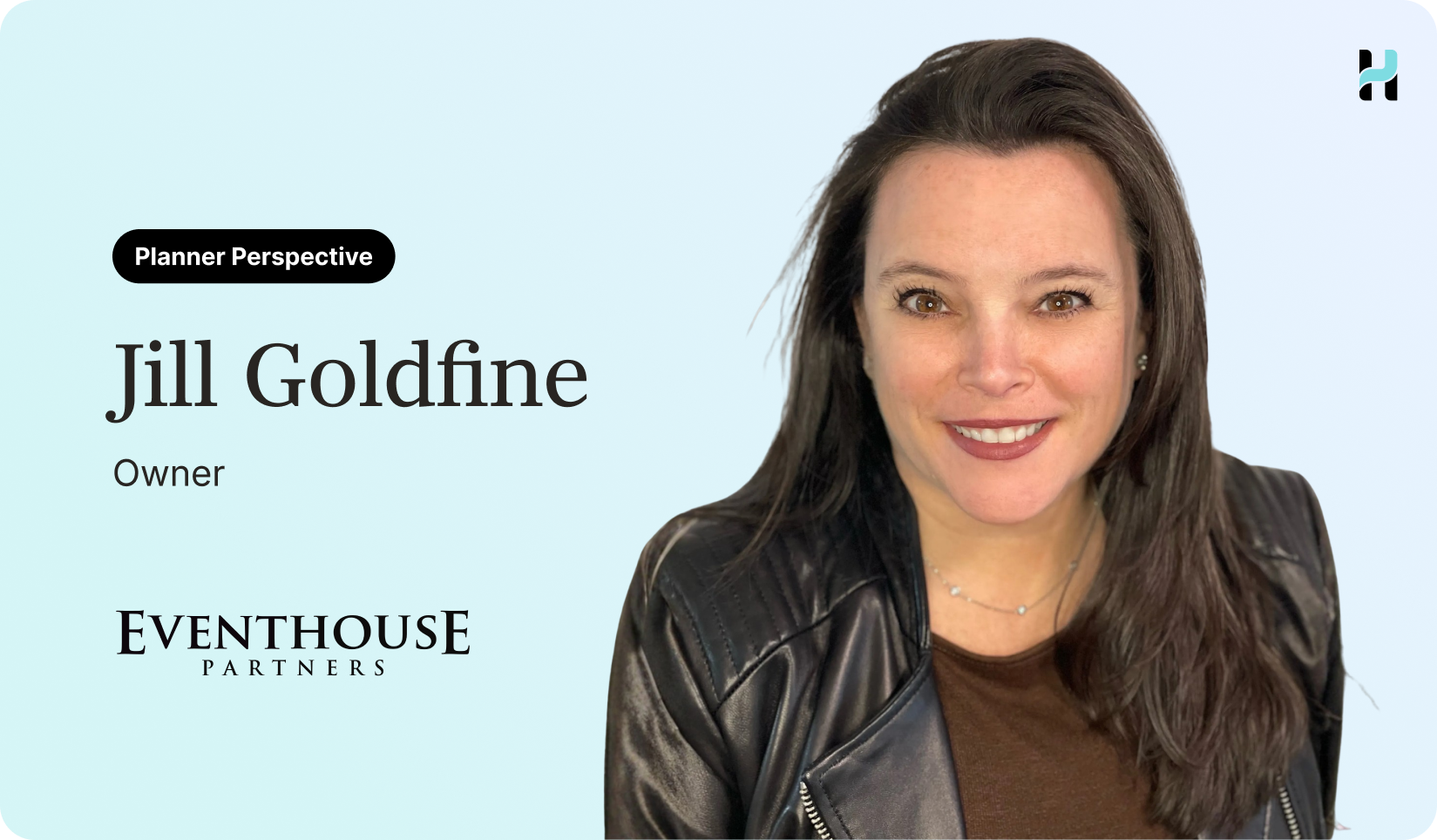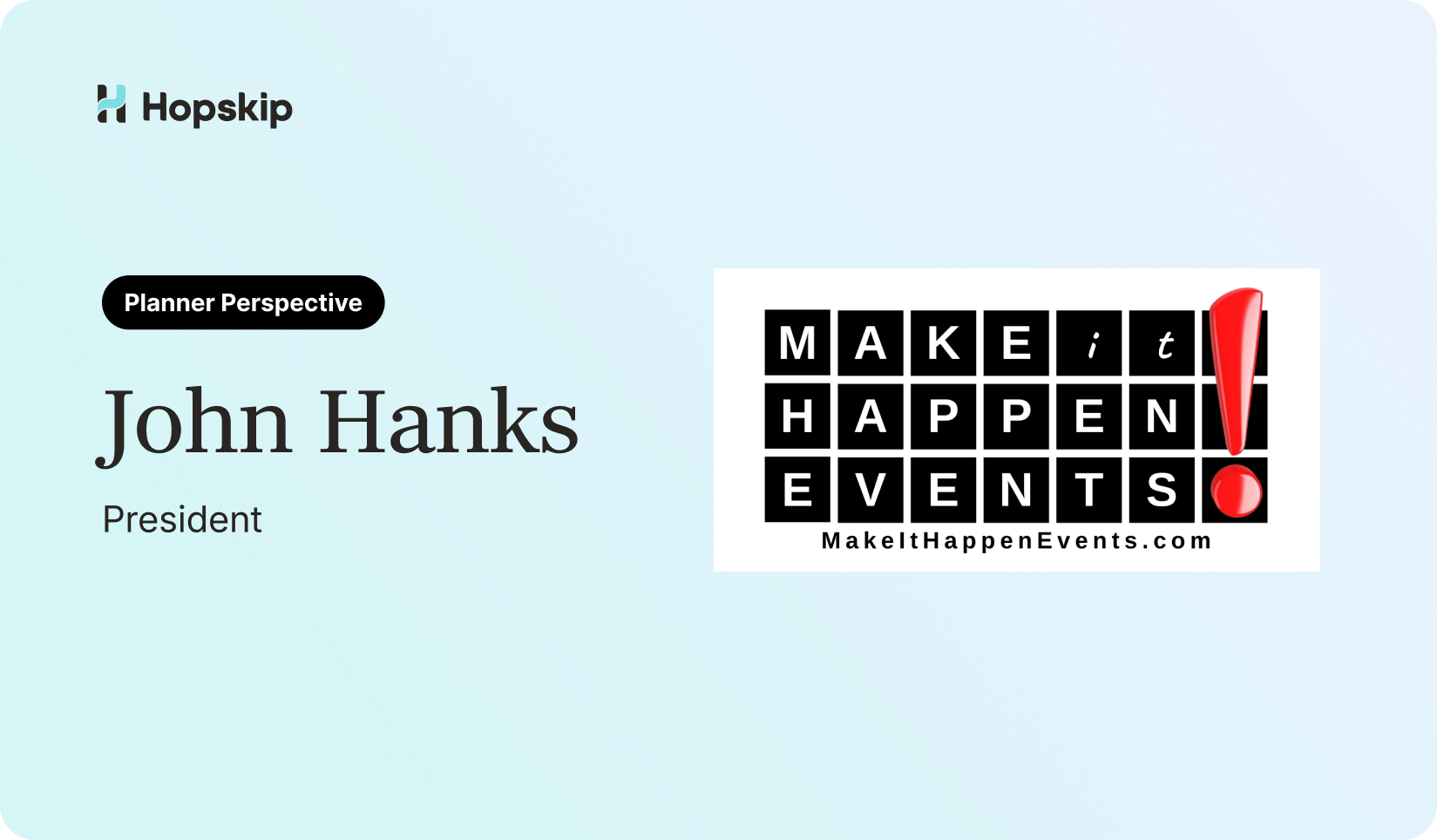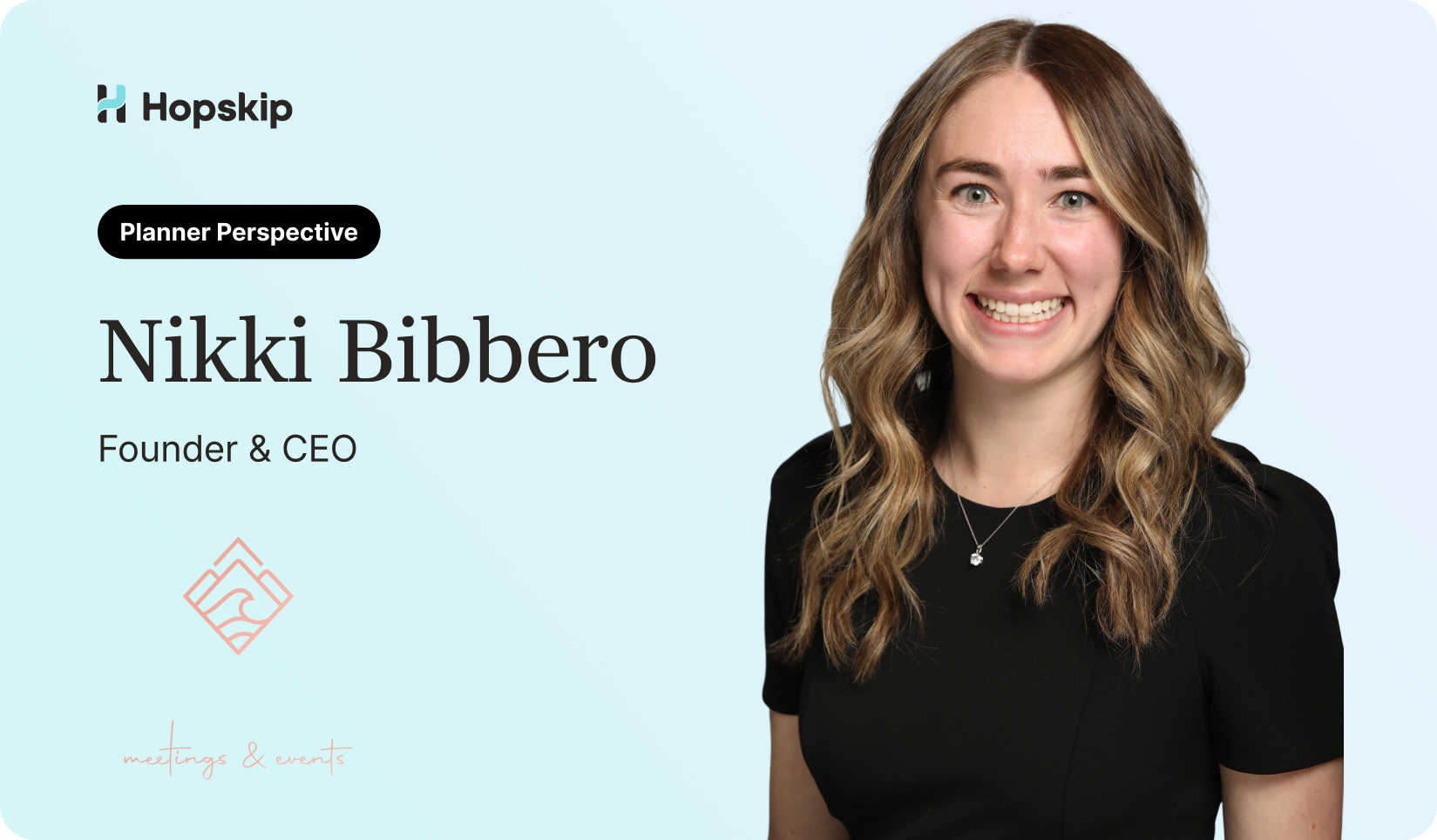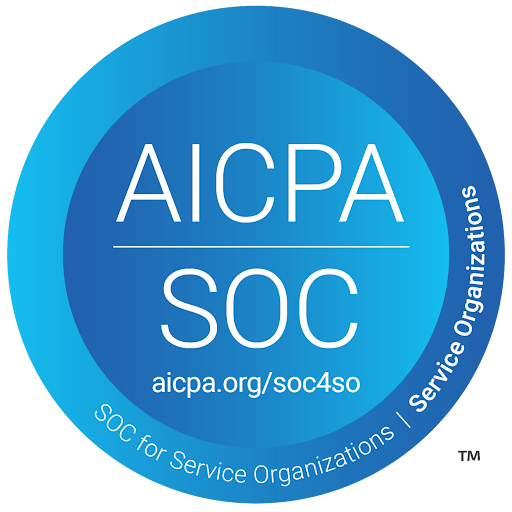Building Trust Through High-Touch Event Planning: Insights from EventHouse Partners
Event planning agency owner, Jill Goldfine, shares how vendor relationships saved her event, her emergency prep strategy, and why listening beats pitching every time.
Event planning requires equal parts preparation, relationships, and the ability to stay calm when everything goes sideways. Jill Goldfine, Owner of EventHouse Partners, has built her agency around these principles—delivering a concierge-style experience that treats every client as a long-term partner rather than a one-time transaction.
Since launching EventHouse Partners in 2018, Jill has carved out a distinctive approach in a competitive industry: high-touch service, solutions-first thinking, and the kind of vendor relationships that can save an event when the unexpected strikes. Her journey from side project to full-time agency offers valuable lessons for both aspiring planners and established professionals looking to refine their craft.
Jill's Journey Into Event Planning
Jill didn't start EventHouse Partners as a side hustle—she started it as a deliberate step toward expanding her skillset beyond traditional event planning roles. After years of experience in the industry, she was ready for a new challenge that would allow her to shape her own planning style and values.
The transition from part-time project to full-time business marked the biggest turning point in EventHouse's growth. As Jill explains:
"Once I fully committed the time and focus to growth, the business gained momentum and new opportunities began to scale."
That commitment meant investing more intentionally in visibility, partnerships, and professional development. Today, EventHouse Partners operates as a boutique agency serving clients who value personalized attention and flawless execution.
The Evolution of a Business Owner
One of the most significant lessons Jill learned early on was the importance of self-reliance. Like many new business owners, she initially relied heavily on others for guidance—a natural instinct when navigating unfamiliar territory.
"I learned the importance of becoming self-reliant and building my own knowledge base," Jill reflects. "While surrounding oneself with smart, successful people is invaluable, I now actively invest time in education sessions, webinars, and networking with industry experts."
This shift from seeking external validation to building internal confidence has made her a stronger, more decisive business owner. She still values input from trusted advisors, but she's learned to trust her own strategic judgment.
Key lesson for planners: Invest in your own education. Attend industry webinars, participate in professional organizations, and build a network of peers you can learn from. The more you know, the more confidently you can guide your clients.
Setting Client Expectations from Day One
Jill's approach to client relationships starts with one critical skill: listening. In that first conversation, she's not pitching services—she's gathering intelligence.
"I gather their priorities, pain points, and success metrics so I can respond accurately and set realistic expectations from the start," she explains. "This allows me to position solutions that are aligned with what matters most to them."
This discovery-first approach prevents common pitfalls like scope creep, budget misalignment, and mismatched expectations. By understanding what success looks like to the client before proposing solutions, Jill ensures that every recommendation directly addresses their specific needs.
Tips for setting client expectations:
- Ask open-ended questions about goals, concerns, and past event experiences
- Document priorities in order of importance (must-haves vs. nice-to-haves)
- Clarify budget parameters and constraints upfront
- Define success metrics together before planning begins
- Establish communication cadence and decision-making processes
Pro Tip: In your first client meeting, spend 70% of the time listening and only 30% talking. The insights you gather will shape every subsequent decision and build immediate trust.
The Power of Vendor Relationships
In event planning, strong vendor relationships aren't just nice to have—they can make or break an event when things go wrong. Jill learned this firsthand when one of her events experienced a sudden surge in attendance just days before arrival.
The situation was challenging: more guest rooms needed, more meeting space required, and additional catering to arrange—all with minimal lead time. But Jill had a long-standing relationship with a hotel sales manager who immediately stepped in to problem-solve.
"She rearranged internal space assignments, secured overflow rooms with a partner property, and expedited updated BEOs so everything stayed on track," Jill recalls. "That partnership saved the event and reinforced why strong relationships are such an essential part of being successful in this industry."
This story illustrates a crucial truth: vendors who know you, trust you, and value your partnership will go the extra mile when emergencies arise. Those relationships are built through consistent professionalism, clear communication, and mutual respect over time.
Strategies for building strong vendor relationships:
- Pay invoices promptly and communicate clearly about payment timelines
- Provide detailed information upfront to minimize back-and-forth
- Acknowledge when vendors deliver exceptional service
- Refer business to vendors who consistently perform well
- Maintain relationships even when you're not actively planning events
- Show up to industry networking events where vendors gather
Pro Tip: Send a personal thank-you note to key vendors after major events. It's a small gesture that reinforces partnership and sets you apart from planners who only reach out when they need something.
Differentiating in a Competitive Industry
The event planning industry is crowded, competitive, and filled with talented professionals. So how does EventHouse Partners stand out?
Jill's answer is simple but powerful: concierge-style service that treats every client as a long-term partner.
"I bring a calm, solutions-first mindset, and I prioritize building trust so clients feel confident they're in capable hands," she explains. "My clients know I will always go the extra mile to make their event exceptional."
That "calm, solutions-first mindset" is particularly valuable during high-stress moments. While some planners panic or deflect when problems arise, Jill's approach is to assess the situation, identify options, and present solutions—all while maintaining composure that reassures clients.
The "go the extra mile" philosophy isn't about working unsustainable hours or undercharging for services. It's about anticipating needs, solving problems before they escalate, and delivering an experience that exceeds expectations within the agreed-upon scope.
Ways to differentiate your planning business:
- Develop a signature process or service model
- Specialize in specific event types or industries
- Invest in professional development and certifications
- Create consistent branding across all client touchpoints
- Build a portfolio showcasing your unique style and results
- Offer value-added services that competitors don't provide
Embracing AI and Emerging Technology
When asked about trends planners should take seriously, Jill immediately points to artificial intelligence.
"While many people are already using AI in their personal lives, our industry is still learning how to apply it effectively to event planning," she notes. "There's a lot of excitement about exploring practical uses, but with so many platforms available, it can feel both overwhelming and inspiring."
Jill sees this moment as an opportunity rather than a threat—a chance for planners to shape how AI evolves in the event space rather than simply reacting to changes imposed from outside the industry.
Practical AI applications for event planners:
- Drafting initial RFP content and venue requirements
- Creating event timelines and checklists
- Generating attendee communication templates
- Analyzing post-event survey data for insights
- Building budget templates and cost projections
- Summarizing lengthy venue contracts for key points
Pro Tip: Start small with AI adoption. Pick one repetitive task (like drafting follow-up emails) and experiment with AI assistance. As you build confidence, expand to more complex applications.
Handling Emergencies with Preparation and Calm
Ask any experienced event planner about their emergency response philosophy, and you'll hear variations on the same theme: hope for the best, prepare for the worst.
Jill's approach embodies this mindset completely:
"My go-to plan for handling emergencies is to be as prepared as possible in advance. I create contingency plans and backup plans for those plans. My priority is to respond calmly and keep the event running smoothly."
That preparation creates confidence—both for Jill and for her clients. When something unexpected happens (and it always does), she's already thought through potential scenarios and solutions. This allows her to focus on exceptional execution rather than scrambling to develop a response in real-time.
Emergency preparedness checklist:
- Maintain updated contact lists for all vendors and key stakeholders
- Identify backup vendors for critical services (AV, catering, transportation)
- Review force majeure and cancellation clauses in all contracts
- Create weather contingency plans for outdoor elements
- Pack an emergency kit with supplies for common issues
- Brief your team on decision-making authority during crises
- Establish communication protocols for rapid stakeholder updates
Pro Tip: Conduct a pre-event "what could go wrong" session with your team. Walk through potential scenarios and document response plans. This mental rehearsal makes real emergencies less overwhelming.
Enhancing the Attendee Experience
Great events don't just run smoothly from a logistics standpoint—they create memorable experiences that attendees talk about long after the event ends. Jill focuses on two key strategies for achieving this:
1. The Power of First Impressions
"Enhancing the attendee experience starts with a warm welcome at registration," Jill explains. "It sets the tone for the entire event."
That registration moment is an attendee's first physical interaction with your event. A chaotic check-in with confused staff and long lines signals disorganization. A smooth, welcoming registration experience with friendly staff and clear signage communicates professionalism and attention to detail.
2. Surprise and Delight Moments
"I try to include surprise and delight moments throughout, whether it's an unexpected interactive element or a small touch that makes attendees feel seen and appreciated," Jill says. "These details create memorable experiences and leave attendees with a lasting positive impression."
These don't have to be expensive gestures. Sometimes it's personalized name badges with a fun fact about each attendee, a surprise coffee cart that appears during an afternoon session, or a small gift that references an inside joke from your organization's culture.
Ideas for surprise and delight moments:
- Personalized welcome notes or gifts in guest rooms
- Unexpected entertainment during transitions between sessions
- Interactive installations that encourage photos and social sharing
- Local food or beverage tastings that showcase the destination
- Handwritten thank-you notes from leadership to attendees
- Surprise guest speakers or performers
Pro Tip: Budget 2-3% of your total event spend for "surprise and delight" moments. These small investments often generate disproportionate attendee satisfaction and word-of-mouth promotion.
Advice for Event Planners: Always Plan for the Unexpected
If Jill could share one tip with every event planner, it would be this:
"Always plan for the unexpected. No matter how detailed your agenda or flawless your logistics, things will come up. Stay calm under pressure and handle any scrambling behind the scenes so clients and attendees never see the chaos. How you respond in those moments often defines the success of the event."
This philosophy separates good planners from exceptional ones. Good planners create detailed plans. Exceptional planners create detailed plans and anticipate where those plans might fail.
The goal isn't to eliminate problems—that's impossible. The goal is to handle problems so smoothly that most people never know they occurred.
Strategies for staying calm under pressure:
- Build extra time into schedules for inevitable delays
- Delegate decision-making authority to trusted team members
- Create a "war room" or back-of-house space for problem-solving
- Communicate proactively with stakeholders about issues and solutions
- Maintain perspective—very few event problems are true emergencies
- Debrief after events to learn from challenges
Making the Unconventional Work
Some of the most memorable events come from clients willing to push boundaries and try something different. Jill experienced this when a client requested transforming a traditional awards dinner into an interactive, festival-style experience with multiple activity stations, live performances, and unconventional food options.
"It was definitely outside the norm, but I embraced the challenge," Jill recalls. "By carefully planning logistics, managing timing, and keeping the client involved in key decisions, we pulled it off seamlessly. Attendees were energized, engaged, and it ended up being one of the most talked-about events of the year."
The key to executing unconventional ideas successfully is structure. Creative formats still require meticulous planning, clear timelines, and proactive risk management. The difference is that you're applying those disciplines to a non-traditional format.
Tips for executing unconventional events:
- Break the concept into smaller, manageable components
- Create detailed flow diagrams showing attendee movement and timing
- Build in extra buffer time for activities that haven't been tested
- Conduct thorough walk-throughs and rehearsals
- Staff appropriately for more complex logistical needs
- Set clear expectations with clients about risk and contingencies
Pro Tip: When a client brings you an unusual idea, your first response should be "let's explore how we can make that work" rather than immediately pointing out obstacles. Creative problem-solving is what clients value most.
If Starting Over: Embrace Experimentation Sooner
Looking back on her journey, Jill identifies two things she would do differently if launching EventHouse Partners today:
1. Embrace Experimentation Without Fear of Failure
"Business owners have to try new ideas, formats, and approaches without fear of failure," Jill explains. "Early on, it's easy to stick with what's familiar, but sometimes the biggest rewards come from taking calculated risks and learning from each experience."
This applies to everything from trying new marketing strategies to experimenting with event formats to testing different service packages. Not every experiment succeeds, but the learning from failures often leads to breakthrough innovations.
2. Build a Strong Digital Presence from Day One
"I'd also focus more on building a strong digital presence from the outset," Jill reflects. "Social media and showcasing my work online are powerful ways to connect with potential clients and establish credibility."
In today's business landscape, your digital presence often serves as the first impression for potential clients. A professional website, active social media presence, and portfolio of past work signal legitimacy and expertise.
Building your digital presence:
- Create a professional website with clear service descriptions and contact information
- Maintain active profiles on LinkedIn and Instagram showcasing your work
- Document events through photos, videos, and case studies
- Share behind-the-scenes content and planning tips to demonstrate expertise
- Collect and display client testimonials prominently
- Write blog posts or articles about event planning topics
Why Hopskip Makes Event Planning Easier
Event planners like Jill manage countless details simultaneously: venue sourcing, vendor coordination, budget tracking, contract management, and client communication. Hopskip was built to streamline these processes and reduce the administrative burden that eats into planning time.
With Hopskip, planners can:
- Centralize venue sourcing and RFP management in one platform instead of juggling multiple email threads
- Compare venue proposals side-by-side with standardized formats that make decision-making easier
- Track communication history with hotels and venues to maintain context across conversations
- Manage contracts and documents in an organized system accessible to the entire planning team
- Collaborate with clients by providing visibility into the sourcing and selection process
- Access transparent pricing without hidden fees or pay-to-play systems
For planners building agencies on high-touch service and strong client relationships—like Jill—Hopskip eliminates administrative friction so they can focus on what matters most: delivering exceptional event experiences.
Best of all, event planners can start using Hopskip for free to experience how it streamlines workflows and creates more time for strategic planning.
Key Takeaways from Jill's Approach
- Listen first, propose second: Gather client priorities, pain points, and success metrics before recommending solutions
- Invest in vendor relationships: Strong partnerships can save events when emergencies arise
- Stay calm under pressure: How you respond to challenges often defines event success more than the challenges themselves
- Prepare contingencies proactively: Create backup plans for backup plans to build confidence and reduce stress
- Focus on attendee experience: First impressions and surprise moments create lasting positive memories
- Build self-reliance through education: Invest continuously in professional development and industry knowledge
- Embrace experimentation: Take calculated risks with new approaches, formats, and technologies
- Establish strong digital presence: Your online visibility is often the first impression for potential clients
Get Started with Hopskip
Ready to streamline your venue sourcing and RFP management process? Start with Hopskip for free today and discover how it helps event planners work more efficiently, build stronger vendor relationships, and deliver exceptional results for every client.
Curabitur bibendum ad viverra eu fringilla ad eu. Eget placerat ultricies quis amet mattis himenaeos ullamcorper facilisi volutpat.
Subscribe to our newsletter
Building Trust Through High-Touch Event Planning: Insights from EventHouse Partners
Event planning agency owner, Jill Goldfine, shares how vendor relationships saved her event, her emergency prep strategy, and why listening beats pitching every time.

Event planning requires equal parts preparation, relationships, and the ability to stay calm when everything goes sideways. Jill Goldfine, Owner of EventHouse Partners, has built her agency around these principles—delivering a concierge-style experience that treats every client as a long-term partner rather than a one-time transaction.
Since launching EventHouse Partners in 2018, Jill has carved out a distinctive approach in a competitive industry: high-touch service, solutions-first thinking, and the kind of vendor relationships that can save an event when the unexpected strikes. Her journey from side project to full-time agency offers valuable lessons for both aspiring planners and established professionals looking to refine their craft.
Jill's Journey Into Event Planning
Jill didn't start EventHouse Partners as a side hustle—she started it as a deliberate step toward expanding her skillset beyond traditional event planning roles. After years of experience in the industry, she was ready for a new challenge that would allow her to shape her own planning style and values.
The transition from part-time project to full-time business marked the biggest turning point in EventHouse's growth. As Jill explains:
"Once I fully committed the time and focus to growth, the business gained momentum and new opportunities began to scale."
That commitment meant investing more intentionally in visibility, partnerships, and professional development. Today, EventHouse Partners operates as a boutique agency serving clients who value personalized attention and flawless execution.
The Evolution of a Business Owner
One of the most significant lessons Jill learned early on was the importance of self-reliance. Like many new business owners, she initially relied heavily on others for guidance—a natural instinct when navigating unfamiliar territory.
"I learned the importance of becoming self-reliant and building my own knowledge base," Jill reflects. "While surrounding oneself with smart, successful people is invaluable, I now actively invest time in education sessions, webinars, and networking with industry experts."
This shift from seeking external validation to building internal confidence has made her a stronger, more decisive business owner. She still values input from trusted advisors, but she's learned to trust her own strategic judgment.
Key lesson for planners: Invest in your own education. Attend industry webinars, participate in professional organizations, and build a network of peers you can learn from. The more you know, the more confidently you can guide your clients.
Setting Client Expectations from Day One
Jill's approach to client relationships starts with one critical skill: listening. In that first conversation, she's not pitching services—she's gathering intelligence.
"I gather their priorities, pain points, and success metrics so I can respond accurately and set realistic expectations from the start," she explains. "This allows me to position solutions that are aligned with what matters most to them."
This discovery-first approach prevents common pitfalls like scope creep, budget misalignment, and mismatched expectations. By understanding what success looks like to the client before proposing solutions, Jill ensures that every recommendation directly addresses their specific needs.
Tips for setting client expectations:
- Ask open-ended questions about goals, concerns, and past event experiences
- Document priorities in order of importance (must-haves vs. nice-to-haves)
- Clarify budget parameters and constraints upfront
- Define success metrics together before planning begins
- Establish communication cadence and decision-making processes
Pro Tip: In your first client meeting, spend 70% of the time listening and only 30% talking. The insights you gather will shape every subsequent decision and build immediate trust.
The Power of Vendor Relationships
In event planning, strong vendor relationships aren't just nice to have—they can make or break an event when things go wrong. Jill learned this firsthand when one of her events experienced a sudden surge in attendance just days before arrival.
The situation was challenging: more guest rooms needed, more meeting space required, and additional catering to arrange—all with minimal lead time. But Jill had a long-standing relationship with a hotel sales manager who immediately stepped in to problem-solve.
"She rearranged internal space assignments, secured overflow rooms with a partner property, and expedited updated BEOs so everything stayed on track," Jill recalls. "That partnership saved the event and reinforced why strong relationships are such an essential part of being successful in this industry."
This story illustrates a crucial truth: vendors who know you, trust you, and value your partnership will go the extra mile when emergencies arise. Those relationships are built through consistent professionalism, clear communication, and mutual respect over time.
Strategies for building strong vendor relationships:
- Pay invoices promptly and communicate clearly about payment timelines
- Provide detailed information upfront to minimize back-and-forth
- Acknowledge when vendors deliver exceptional service
- Refer business to vendors who consistently perform well
- Maintain relationships even when you're not actively planning events
- Show up to industry networking events where vendors gather
Pro Tip: Send a personal thank-you note to key vendors after major events. It's a small gesture that reinforces partnership and sets you apart from planners who only reach out when they need something.
Differentiating in a Competitive Industry
The event planning industry is crowded, competitive, and filled with talented professionals. So how does EventHouse Partners stand out?
Jill's answer is simple but powerful: concierge-style service that treats every client as a long-term partner.
"I bring a calm, solutions-first mindset, and I prioritize building trust so clients feel confident they're in capable hands," she explains. "My clients know I will always go the extra mile to make their event exceptional."
That "calm, solutions-first mindset" is particularly valuable during high-stress moments. While some planners panic or deflect when problems arise, Jill's approach is to assess the situation, identify options, and present solutions—all while maintaining composure that reassures clients.
The "go the extra mile" philosophy isn't about working unsustainable hours or undercharging for services. It's about anticipating needs, solving problems before they escalate, and delivering an experience that exceeds expectations within the agreed-upon scope.
Ways to differentiate your planning business:
- Develop a signature process or service model
- Specialize in specific event types or industries
- Invest in professional development and certifications
- Create consistent branding across all client touchpoints
- Build a portfolio showcasing your unique style and results
- Offer value-added services that competitors don't provide
Embracing AI and Emerging Technology
When asked about trends planners should take seriously, Jill immediately points to artificial intelligence.
"While many people are already using AI in their personal lives, our industry is still learning how to apply it effectively to event planning," she notes. "There's a lot of excitement about exploring practical uses, but with so many platforms available, it can feel both overwhelming and inspiring."
Jill sees this moment as an opportunity rather than a threat—a chance for planners to shape how AI evolves in the event space rather than simply reacting to changes imposed from outside the industry.
Practical AI applications for event planners:
- Drafting initial RFP content and venue requirements
- Creating event timelines and checklists
- Generating attendee communication templates
- Analyzing post-event survey data for insights
- Building budget templates and cost projections
- Summarizing lengthy venue contracts for key points
Pro Tip: Start small with AI adoption. Pick one repetitive task (like drafting follow-up emails) and experiment with AI assistance. As you build confidence, expand to more complex applications.
Handling Emergencies with Preparation and Calm
Ask any experienced event planner about their emergency response philosophy, and you'll hear variations on the same theme: hope for the best, prepare for the worst.
Jill's approach embodies this mindset completely:
"My go-to plan for handling emergencies is to be as prepared as possible in advance. I create contingency plans and backup plans for those plans. My priority is to respond calmly and keep the event running smoothly."
That preparation creates confidence—both for Jill and for her clients. When something unexpected happens (and it always does), she's already thought through potential scenarios and solutions. This allows her to focus on exceptional execution rather than scrambling to develop a response in real-time.
Emergency preparedness checklist:
- Maintain updated contact lists for all vendors and key stakeholders
- Identify backup vendors for critical services (AV, catering, transportation)
- Review force majeure and cancellation clauses in all contracts
- Create weather contingency plans for outdoor elements
- Pack an emergency kit with supplies for common issues
- Brief your team on decision-making authority during crises
- Establish communication protocols for rapid stakeholder updates
Pro Tip: Conduct a pre-event "what could go wrong" session with your team. Walk through potential scenarios and document response plans. This mental rehearsal makes real emergencies less overwhelming.
Enhancing the Attendee Experience
Great events don't just run smoothly from a logistics standpoint—they create memorable experiences that attendees talk about long after the event ends. Jill focuses on two key strategies for achieving this:
1. The Power of First Impressions
"Enhancing the attendee experience starts with a warm welcome at registration," Jill explains. "It sets the tone for the entire event."
That registration moment is an attendee's first physical interaction with your event. A chaotic check-in with confused staff and long lines signals disorganization. A smooth, welcoming registration experience with friendly staff and clear signage communicates professionalism and attention to detail.
2. Surprise and Delight Moments
"I try to include surprise and delight moments throughout, whether it's an unexpected interactive element or a small touch that makes attendees feel seen and appreciated," Jill says. "These details create memorable experiences and leave attendees with a lasting positive impression."
These don't have to be expensive gestures. Sometimes it's personalized name badges with a fun fact about each attendee, a surprise coffee cart that appears during an afternoon session, or a small gift that references an inside joke from your organization's culture.
Ideas for surprise and delight moments:
- Personalized welcome notes or gifts in guest rooms
- Unexpected entertainment during transitions between sessions
- Interactive installations that encourage photos and social sharing
- Local food or beverage tastings that showcase the destination
- Handwritten thank-you notes from leadership to attendees
- Surprise guest speakers or performers
Pro Tip: Budget 2-3% of your total event spend for "surprise and delight" moments. These small investments often generate disproportionate attendee satisfaction and word-of-mouth promotion.
Advice for Event Planners: Always Plan for the Unexpected
If Jill could share one tip with every event planner, it would be this:
"Always plan for the unexpected. No matter how detailed your agenda or flawless your logistics, things will come up. Stay calm under pressure and handle any scrambling behind the scenes so clients and attendees never see the chaos. How you respond in those moments often defines the success of the event."
This philosophy separates good planners from exceptional ones. Good planners create detailed plans. Exceptional planners create detailed plans and anticipate where those plans might fail.
The goal isn't to eliminate problems—that's impossible. The goal is to handle problems so smoothly that most people never know they occurred.
Strategies for staying calm under pressure:
- Build extra time into schedules for inevitable delays
- Delegate decision-making authority to trusted team members
- Create a "war room" or back-of-house space for problem-solving
- Communicate proactively with stakeholders about issues and solutions
- Maintain perspective—very few event problems are true emergencies
- Debrief after events to learn from challenges
Making the Unconventional Work
Some of the most memorable events come from clients willing to push boundaries and try something different. Jill experienced this when a client requested transforming a traditional awards dinner into an interactive, festival-style experience with multiple activity stations, live performances, and unconventional food options.
"It was definitely outside the norm, but I embraced the challenge," Jill recalls. "By carefully planning logistics, managing timing, and keeping the client involved in key decisions, we pulled it off seamlessly. Attendees were energized, engaged, and it ended up being one of the most talked-about events of the year."
The key to executing unconventional ideas successfully is structure. Creative formats still require meticulous planning, clear timelines, and proactive risk management. The difference is that you're applying those disciplines to a non-traditional format.
Tips for executing unconventional events:
- Break the concept into smaller, manageable components
- Create detailed flow diagrams showing attendee movement and timing
- Build in extra buffer time for activities that haven't been tested
- Conduct thorough walk-throughs and rehearsals
- Staff appropriately for more complex logistical needs
- Set clear expectations with clients about risk and contingencies
Pro Tip: When a client brings you an unusual idea, your first response should be "let's explore how we can make that work" rather than immediately pointing out obstacles. Creative problem-solving is what clients value most.
If Starting Over: Embrace Experimentation Sooner
Looking back on her journey, Jill identifies two things she would do differently if launching EventHouse Partners today:
1. Embrace Experimentation Without Fear of Failure
"Business owners have to try new ideas, formats, and approaches without fear of failure," Jill explains. "Early on, it's easy to stick with what's familiar, but sometimes the biggest rewards come from taking calculated risks and learning from each experience."
This applies to everything from trying new marketing strategies to experimenting with event formats to testing different service packages. Not every experiment succeeds, but the learning from failures often leads to breakthrough innovations.
2. Build a Strong Digital Presence from Day One
"I'd also focus more on building a strong digital presence from the outset," Jill reflects. "Social media and showcasing my work online are powerful ways to connect with potential clients and establish credibility."
In today's business landscape, your digital presence often serves as the first impression for potential clients. A professional website, active social media presence, and portfolio of past work signal legitimacy and expertise.
Building your digital presence:
- Create a professional website with clear service descriptions and contact information
- Maintain active profiles on LinkedIn and Instagram showcasing your work
- Document events through photos, videos, and case studies
- Share behind-the-scenes content and planning tips to demonstrate expertise
- Collect and display client testimonials prominently
- Write blog posts or articles about event planning topics
Why Hopskip Makes Event Planning Easier
Event planners like Jill manage countless details simultaneously: venue sourcing, vendor coordination, budget tracking, contract management, and client communication. Hopskip was built to streamline these processes and reduce the administrative burden that eats into planning time.
With Hopskip, planners can:
- Centralize venue sourcing and RFP management in one platform instead of juggling multiple email threads
- Compare venue proposals side-by-side with standardized formats that make decision-making easier
- Track communication history with hotels and venues to maintain context across conversations
- Manage contracts and documents in an organized system accessible to the entire planning team
- Collaborate with clients by providing visibility into the sourcing and selection process
- Access transparent pricing without hidden fees or pay-to-play systems
For planners building agencies on high-touch service and strong client relationships—like Jill—Hopskip eliminates administrative friction so they can focus on what matters most: delivering exceptional event experiences.
Best of all, event planners can start using Hopskip for free to experience how it streamlines workflows and creates more time for strategic planning.
Key Takeaways from Jill's Approach
- Listen first, propose second: Gather client priorities, pain points, and success metrics before recommending solutions
- Invest in vendor relationships: Strong partnerships can save events when emergencies arise
- Stay calm under pressure: How you respond to challenges often defines event success more than the challenges themselves
- Prepare contingencies proactively: Create backup plans for backup plans to build confidence and reduce stress
- Focus on attendee experience: First impressions and surprise moments create lasting positive memories
- Build self-reliance through education: Invest continuously in professional development and industry knowledge
- Embrace experimentation: Take calculated risks with new approaches, formats, and technologies
- Establish strong digital presence: Your online visibility is often the first impression for potential clients
Get Started with Hopskip
Ready to streamline your venue sourcing and RFP management process? Start with Hopskip for free today and discover how it helps event planners work more efficiently, build stronger vendor relationships, and deliver exceptional results for every client.
.svg)






.svg)

